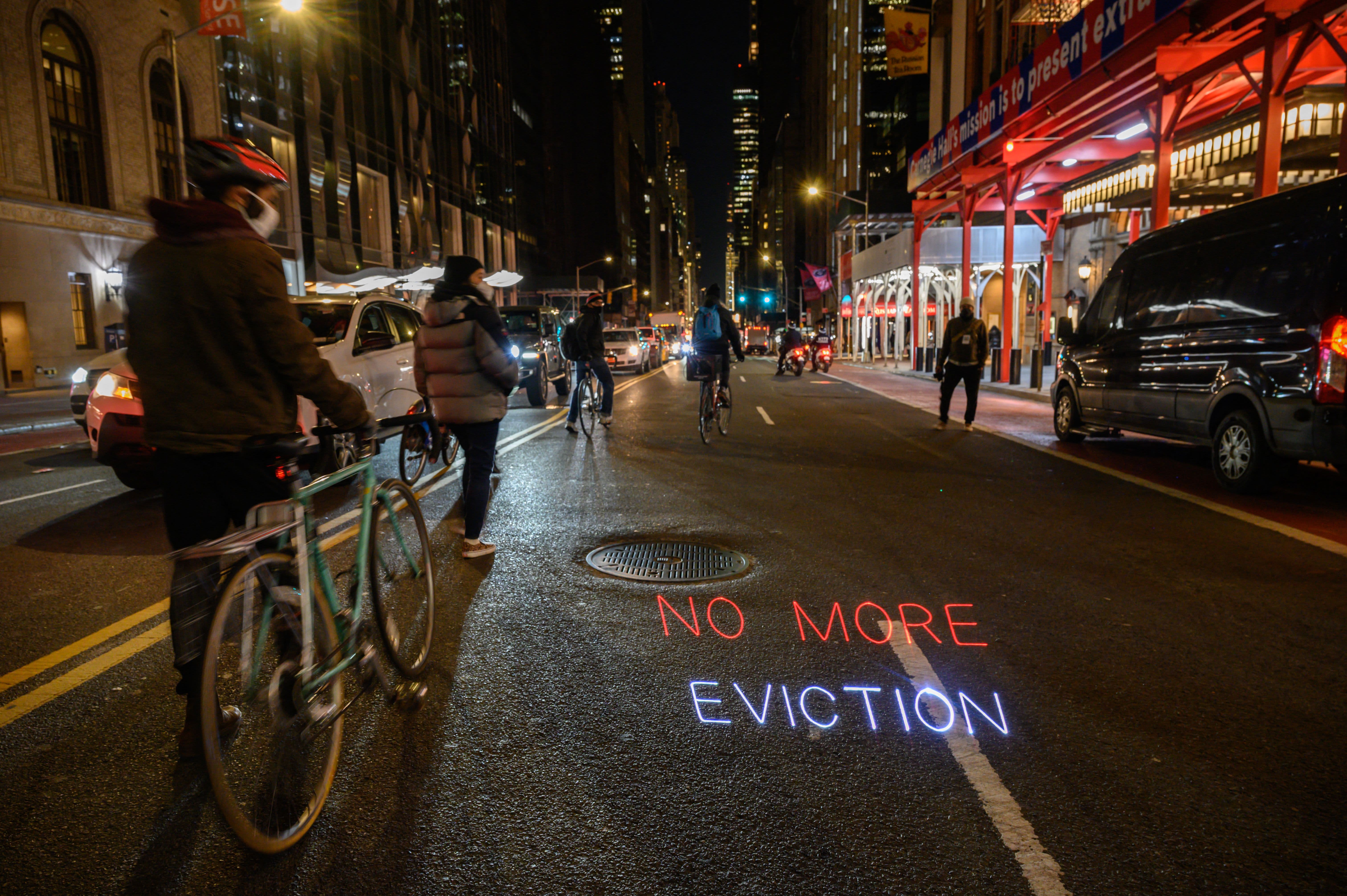New York City's eviction rate is on the rise after a moratorium brought on by the pandemic expired in Jan. 2022, as have the protections and rent relief programs for tenants.
Since that time, thousands of people have been removed from their buildings. Programs like New York’s Emergency Rental Assistance Program, or ERAP, will stop taking applications starting Friday, meaning more evictions could be coming as well.
The increase in evictions month-to-month is pretty stunning. New data from the city shows that during the last two weeks of Jan. 2022, there were only 26 evictions citywide. Fast-forward to Jan. 2023, and there have been 350 evictions.
Get Tri-state area news and weather forecasts to your inbox. Sign up for NBC New York newsletters.
On Jan. 12 alone, marshals executed more than 50 evictions in a single day.
Throughout the five boroughs, nearly 4,400 families and tenants have been removed from their homes since the ban on evictions lifted.
Orchid Nicholas is among those facing eviction, as she and her daughter could be forced to leave their home in Flatbush, Brooklyn.
"I’ve been looking for a place since 2021, rent is going sky-high," Nicholas said.
But finding an affordable place to live is about as hard as finding a free attorney to represent you in housing court, says Nicholas.
"Calling to get the attorneys, no responses. They keep referring us to different organizations and none has been responding to us. Eventually I had to represent myself in the courtroom," she said.
An attorney who represents both tenants and landlords said there has been a sizeable uptick in a particular type of eviction — one that puts tenants in a tough spot.
"Right now, we’re seeing more and more no-cause evictions, on no grounds, meaning the landlord does not need a reason to evict you. Merely by the expiration of your lease, you can be in court," said attorney Altagracia Pierre-Outerbridge, who founded Outerbridge Law P.C.
She said there are still plenty of protections in place for tenants, and they typically have as much as 6 months of notice before a marshal knocks on their door.
"It’s a renters city, New York City is one of the biggest renter cities in the world so the tenant protections still apply," said Pierre-Outerbridge.
But the problem isn't limited to NYC. In just the first week of January, the Eviction Lab at Princeton University has counted more than 9,300 evictions in the nine states and the 32 cities it monitors.
What Can Tenants Facing Eviction Do?
Familiarize yourself with tenant rights
Although it's a tough time for tenants with rents soaring, the pandemic has also ushered in a new set of protections. It's worth researching and familiarizing yourself with any rights to which you may be entitled, experts say.
In certain cities, for example, landlords are now limited in how much they can raise your rent. If you're facing eviction because of an increase that was illegal, it's worth knowing: You may be able to bring this up in housing court, or with your landlord.
In some places, you're entitled to a set amount of notice with an eviction, such as at least 90 days in specific cases in Portland, Maine. During the school year, educators and families with school-age children recently got new eviction protections in Oakland, California.
Meanwhile, if your landlord has raised your rent above a certain amount, you could be eligible in a few cities, including Seattle and Portland, Oregon, to get some of your moving costs covered.
Work with a lawyer
If your landlord has moved to evict you, housing advocates recommend that you try to get a lawyer as soon as possible.
One study in New Orleans found that more than 65% of tenants with no legal representation were evicted, compared with just 15% of those who had a lawyer with them at their hearing.
You can find low-cost or free legal help with an eviction in your state at Lawhelp.org.
In a growing number of cities and states, including Washington, Maryland and Connecticut, tenants facing eviction have a right to counsel. You can find a longer list of those places at civilrighttocounsel.org.
Consider your options for rent
Most rental assistance programs that opened during the pandemic are now closed, but some are still accepting applications.
On the National Low Income Housing Coalition's website, you can find a state-by-state guide of relief options and their status.
It's not a strategy experts recommend, but some tenants are using their credit cards to cover their rent. Few landlords or property managers accept plastic, so you'd have to find a third-party processor, such as Plastiq or PayPal.
But this option should only be used in dire situations, said Ted Rossman, a senior industry analyst at CreditCards.com.
"The biggest potential issue is carrying a balance and paying interest on your rent," Rossman said. "This can make an already sizable expense much more substantial."
Instead, he recommends tenants ask their landlord for an extension or payment plan. Other ways to come up with rent can include borrowing from family members and friends, or from your retirement plan, Rossman said.




